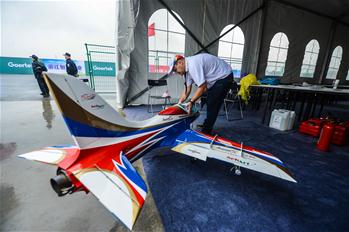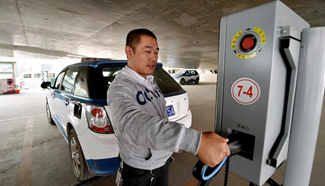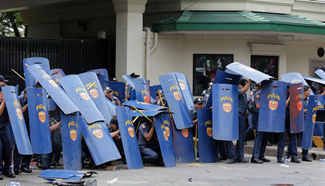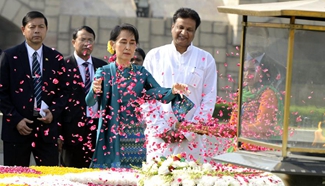NANNING, Oct. 19 (Xinhua) -- China is working with Vietnam to crack down on drug traffickers in border areas.
Chinese police announced Wednesday that they have detained five suspected drug dealers, including four Vietnamese, as well as 18.2 kg of heroin in their third joint crackdown with Vietnam to fight drugs.
The drug trade remains rampant in China's border areas despite enhanced supervision. The problem is especially pervasive in south China's Guangxi Zhuang Autonomous Region, which borders Vietnam and has become one of the biggest channels for drug trafficking to and from China -- second only to neighboring Yunnan Province.
"A lot of drugs from the Golden Triangle and Golden Crescent areas flow to China via the border areas, while some new synthetic drugs are trafficked from China to Vietnam," said Qiu Yucheng, deputy head of the anti-drug division under Guangxi's regional department of public security.
HIDDEN IN EELS
It is increasingly difficult to spot and nab drug dealers.
Earlier this year, police in Guangxi's Pingxiang City were tipped off about some Vietnamese who were trying to transport drugs to China via seafood. A secret investigation was launched immediately.
"After a long-term investigation, we found that a seafood transfer station in Pingxiang often took live seafood from Vietnam," said Luo Shenghui, head of the anti-drug division under Pingxiang's public security bureau. "The station's seafood was frequently transported to neighboring Guangdong Province, which is one of the major areas for heroin sales."
On Aug. 29, local police learned that several Vietnamese nationals had carried two buckets of eels -- possibly containing drugs -- into China.
One policeman disguised himself as a driver and helped transport the eels from the transfer station to a seafood market in Guangzhou, capital of Guangdong. There, police detained two Vietnamese women and a Guangxi woman who were waiting for the eels. In the buckets, they later found 38 chunks of heroin weighing 13.3 kg.
WORKING TOGETHER
As the drugs and the main suspects in the case were from Vietnam, Guangxi police contacted Vietnamese police via a "border contact mechanism" established in 2012 to investigate the case together.
"We managed to contact Vietnamese police very quickly via the mechanism," Luo Shenghui said.
On Sept. 1, five Vietnamese police came to Guangxi for the investigation. They later found that the drugs were from several drug dealers in Vietnam, and the suspects were in China to help transfer the drugs. Based on their confessions, the Vietnamese police managed to seize the dealers in Vietnam while confiscating 14 chunks of heroin.
Police in Guangxi and Vietnam are currently expanding their anti-drug cooperation.
China has stepped up efforts in recent years to control illegal drug trafficking in Yunnan Province, which is on the forefront of the country's fight against illegal drugs. Guangxi, which has many loosely supervised shortcuts linking China and Vietnam, has naturally become a magnet for smugglers.
Official statistics reveal that in 2010, 2011 and 2012, Guangxi police nabbed illegal substances weighing 181 kg, 212 kg and 421 kg respectively in the border area. They mainly came from the Middle East and Southeast Asia.
"We have not only found drug trafficking, but also gun and human trafficking," Qiu said.
Border cities or counties including Dongxing, Pingxiang, Ningming and Daxin face particularly serious drug problems, with substances transported to China via Vietnam. According to Guangxi's border police, the locations usually act as a "transfer stop" for drugs sourced from Southeast Asia's "Golden Triangle" to be sold in China.
However, Chinese and Vietnamese police have been able to exchange information and launch joint investigations since the "border contact mechanism" was established.
In July this year, the anti-drug department under China's Ministry of Public Security inked a cooperation memorandum with its Vietnamese counterpart to launch its third joint border clamp-down against drugs from September to December.
By Oct. 10, the crackdown had resulted in 1,036 suspects caught in 842 cases across 18 provinces, cities and regions in China. Of the suspects, 11 are Vietnamese nationals and two are foreign nationals from other countries.
Though the cooperation mechanism has had good results, challenges remain.
Qiu Yucheng said that drug traders have taken to hiding drugs in fruit, seafood and other commodities, making investigation difficult.
"We will enhance our cooperation to crack down on such crimes," Qiu said.











